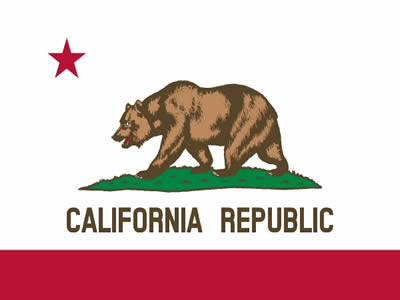The battle over online poker regulation in California continues. One of the biggest problems that has been causing a lack of progress on this issue is what the industry refers to as “bad actors.” Bad actors are companies that persisted in providing online poker to players after the 2006 UIGEA legislation was passed.
PokerStars as a “Bad Actor?”
Several tribes have banded together to form the “Pechanga Coalition.” The representatives that are a part of this coalition claim to believe that “bad actors” like PokerStars and Full Tilt were given an unfair advantage in the market compared to those that complied with the UIGEA legislation because they were able to build up their brand with virtually no real competition.
In 2011, after PokerStars’ and Full Tilt’s domains were seized by the Department of Justice also known as Black Friday, PokerStars reached a settlement with the DOJ to drop their charges and, in the process, acquired Full Tilt’s assets. This garnered a lot of goodwill with Full Tilt’s player base because the company was not going to be able to repay any of the funds deposited due to fraud and negligence. By paying out the $184 million owed to Full Tilt players, PokerStars effectively secured an enormous portion of the market and paved the way for reentry into a regulated United States market.
“Tainted Assets” and the Online Poker Stalemate
After Amaya Gaming Group purchased the PokerStars and Full Tilt brands, it was expected that PokerStars would soon debut in regulated markets again, because Amaya already had its foot in the door of the regulated U.S. market. Instead, the opposition began clamoring about Amaya’s acquisition of “tainted assets,” which encompassed anything directly or indirectly related to the PokerStars brand.
These claims of “bad actors” and “tainted assets” serve as the basis for the argument that companies like PokerStars should not be allowed to participate in regulated US online poker markets because the “unfair competitive advantage” they had years ago will translate into market domination if they are allowed reentry.
Opposing stakeholders have outright rejected every attempt at progressing the bill, claiming that the concessions and proposed sanctions against bad actors are nowhere near drastic enough. Agua Caliente tribe chairman Jeff Grubbe even went so far as to call the most recent fine proposition a “Get Out of Jail Free Card.”
The Penchanga Coalition “Concession”
Recently, the Pechanga Coalition has reversed its long-held stance that PokerStars should be forbidden to participate in the U.S. regulated online poker market indefinitely. Instead, they have offered a concession that will exclude bad actors from licensing for 10 years and force them to pay a $60 million dollar fine after that 10-year period before they are allowed to operate in California.
While the coalition insists that this new “concession” will “provide a pathway for offshore service providers to access the California online poker market,” many can easily see through this supposed gesture of cooperation. By and large, their alleged change in position is seen as a thinly-veiled attempt to deflect the growing number of accusations of obstructionism the coalition is facing. It’s no secret that the tribes benefit immensely from a market where PokerStars is not allowed to operate.
Eric Hollreiser, Amaya Gaming Group’s VP of Corporate Communications, issued a statement that tore into the coalition for their obvious resistance to progressing this bill, as well as their belief that PokerStars should be subjected to a fine before they are allowed to enter the U.S. market. He said:
It is a shame that obstructionist forces continue to block the passage of a pro-consumer online poker bill in California. We finally have real progress this year, with the majority of gaming tribes supporting the legislation, along with the AFL-CIO, SEIU, Teamsters, horse racing tracks, card rooms and gaming operators. Unfortunately, a recent amendment to AB 2863 is unconstitutional and our opponents seem intent to expand upon that flawed and unconstitutional language.”
The Path Forward
Unfortunately, the coalition’s blockage of the bill is not the only problem. California still has to deal with the issues of high tax rates and a lack of consumer protection before this bill can be passed in any form.

